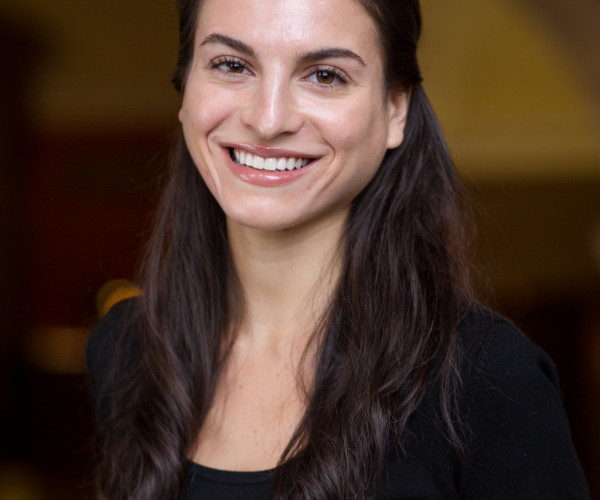What does “collegial” even mean, anyway?
This blog series from current students examines aspects of #PennLawLife.
By Alexandra Munson L’19
“Collegial” is the buzzword of Penn Law, but for those who have not personally visited campus, the word might seem a little abstract. What does it really mean for a law school to be collegial? Is it just something that Penn Law puts on its website? No way. Does it just mean that the administration is cool enough to offer free lunches all the time? I mean, yes, but there is way more to it.
First, collegiality at Penn Law means that your classmates are your biggest resources.
In undergrad, concentrating in a different major from my friends meant that the work we did and the classroom experiences we had did not always match up. But meandering through my first semester at Penn Law was much easier because I was learning with and learning from the same people in the same classes. I say “learning from” because the students in your classes will be just as thought-provoking and interesting as your professors. I have frequently heard one student go up to another and say, “Wow, you said something in class today that I never thought of before!” Whether my classmates realize it or not, we have all become better learners by actively listening to each other and engaging with what others have to say.
Second, collegiality at Penn Law means having professors who are invested in your career.
Before I applied to Penn Law, I emailed a professor whose bio on the school website had sparked my interest. I wanted to learn more about the programs and classes offered in his department, and asked if he could answer a few questions over email. He promptly responded, inviting me for an in-person meeting. The next week I found myself sitting in his office and discussing the opportunities in international law available at Penn Law. Though perhaps one of the busiest professors, Professor Burke-White took the time to meet me and introduce me to the school. Coincidentally, I am now taking his Public International Law class and getting the chance to pursue those opportunities I learned about on my first visit.
Professors are certainly not obligated to get to know their students outside of the classroom, but they frequently do so because they are as interested in speaking with you as you are with them. My career aspirations became more focused just by asking professors I admire about their career trajectories. The whirlwind of 1L is a new experience for everyone, but the professors at Penn Law make sure that no one gets lost in the shuffle.
Third, collegiality at Penn Law means having wise wisdom from upperclassmen always on hand.
 The best way of learning how to navigate the first year of law school is by turning to any upperclassmen for advice. The 2L who gave me a tour on the first day of orientation is one of my closest friends today. She has been the best coach, cheerleader, and confidante. Sure, I am extremely lucky to have become close with someone so willing to help me succeed, but the great thing about Penn Law is that helpful people are everywhere. The 2Ls and 3Ls lead by example, and nearly all of them eagerly reach out to 1Ls within the first month of classes. If you were worried about learning how to brief a case, finding an outline, or understanding what in the world “consideration” in a contract means (hint: me, last semester…and kind of right now), please, do not be. Collegiality at Penn Law has that taken care of.
The best way of learning how to navigate the first year of law school is by turning to any upperclassmen for advice. The 2L who gave me a tour on the first day of orientation is one of my closest friends today. She has been the best coach, cheerleader, and confidante. Sure, I am extremely lucky to have become close with someone so willing to help me succeed, but the great thing about Penn Law is that helpful people are everywhere. The 2Ls and 3Ls lead by example, and nearly all of them eagerly reach out to 1Ls within the first month of classes. If you were worried about learning how to brief a case, finding an outline, or understanding what in the world “consideration” in a contract means (hint: me, last semester…and kind of right now), please, do not be. Collegiality at Penn Law has that taken care of.





